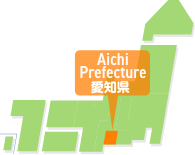Is it hard to take long vacations in Japan? Learn about annual holidays, national holidays, and consecutive days off

Hello, this is Kano from JAC (Japan Association for Construction Human Resources).
Japanese people are said to be one of the nations worldwide that does not take long vacations.
From a foreigner's perspective, you might wonder, "Why?"
For those who are thinking about taking an extended vacation and returning home, it is important to know how much vacation time you can get in Japan.
So, this time we will explain how Japan views long holidays and the times when it is easiest to take a long vacation.
What is a long vacation? Why is it said that it is difficult to take a long vacation in Japan?
In Japan, a long vacation refers to a continuous break of one week or more.
In recent years, people in Japan have been encouraged to take vacations, and it is possible to take vacations of a few days to a week.
However, few people take a vacation lasting several weeks.
There are two reasons why few people in Japan take long vacations.
①Feeling guilty about taking a break
If you have a heavy workload and are short-staffed, others will have more work to do during your vacation.
This makes some people feel guilty about taking time off.
Many Japanese people have a strong belief that they don't want to cause trouble for others, and tend to feel sorry if they take a day off.
②There are many national holidays
Actually, there are many holidays in Japan.
As we will explain later, Japan has national holidays, with a total of 16 days off per year.
Some people believe that there is no need to take a long vacation because they can take multiple short vacations by combining public holidays and weekends.
This article also provides more information about working styles in Japan.
Explaining the characteristics of the Japanese work style! Do Japanese people really work too much?
How many holidays does Japan have per year? Learn about national holidays and consecutive holidays
As of 2026, the following 16 days have been designated as national holidays in Japan.
If a public holiday falls on a Sunday, the Monday will be a substitute holiday.
[National holidays and days off in 2026]
| date | Holiday Name |
|---|---|
| January 1st | New Year's Day |
| January 12 | Coming of Age Day |
| February 11th | National Foundation Day |
| February 23 | Emperor's Birthday |
| March 20 | Vernal Equinox |
| April 29th | Showa Day |
| May 3 | Constitution Memorial Day |
| May 4th | Greenery Day |
| May 5 | Children's Day |
| July 20 | Marine Day |
| August 11 | Mountain Day |
| September 21 | Respect for the Aged Day |
| September 23 | Autumnal Equinox |
| October 12 | Sports Day |
| November 3 | Culture Day |
| November 23 | Labor Thanksgiving Day |
In Japan, in addition to the public holidays mentioned above, many companies are closed on Saturdays and Sundays.
Therefore, it is possible to take a longer break by using paid leave and combining public holidays with Saturdays and Sundays.
In early May, there are three consecutive national holidays: Constitution Memorial Day, Greenery Day, and Children's Day.
If there are Saturdays or Sundays before and after your leave, or if you use paid leave, you can take a longer break.
In Japan, this period is called "Golden Week."
Also, the autumnal equinox in September changes every year.
The Autumnal Equinox Day may fall on or around Respect for the Aged Day, resulting in a longer holiday.
This period is called "Silver Week."
Additionally, many Japanese companies will be closed during the following periods.
- New Year's holiday: December 29th to January 3rd
- Obon: August 13th to August 16th
During this time, many people take a long vacation of about a week by using their paid leave before and after the holiday.
Obon is a traditional Japanese summer event in which the spirits of ancestors who have returned temporarily are welcomed and memorialized.
We have introduced it in this column, so please read it.
What is the Japanese Obon Festival? When is it celebrated and how do you spend it?
Comparing Japan's long holidays with those of other countries

In some parts of the world, it is common to take a long vacation of several weeks.
For example, in France there is a law called the "Vacation Law" that requires companies to provide long vacations, and employees sometimes take vacations of more than a month in the summer.
In addition, in Christian countries such as the United States, many people take holidays around December 20th during the Christmas season.
In Asia, many people take holidays during the Christmas season in the Philippines, which also has a large Christian population.
However, in Japan, Christmas is not a holiday.
If you want to return home temporarily during the Christmas season, check with your company two to three months in advance to see if you can take time off.
In addition, the Tet holiday in Vietnam and the post-Ramadan holiday in Indonesia also differ from the holiday periods in Japan.
Vietnam's Tet holiday corresponds to Japan's New Year's holiday.
However, the timing of Japanese New Year (in January) and Tet (late January to February) is different.
In Indonesia, where many people are Muslim, many people take time off to gather with their families after fasting for a month during Ramadan.
The date of Ramadan changes every year, so if it falls close to Golden Week in Japan, it is easier to take time off.
However, many people travel or return home during Japanese holidays and consecutive weekends, as well as the days before and after these holidays, so airfares to and from Japan and accommodation costs within Japan are high.
Reservations are difficult to get, so make sure to book early once you have your plans decided.
【Specified Skilled Workers】A system that can be used when returning from a long vacation
JAC has a system in place to reduce the cost burden of temporary repatriation for Specified Skilled Workers working in the construction industry in Japan.
The amount of support is 80,000 yen per person once.
Assistance is available to Specified Skilled Workers who meet the following criteria:
- Temporarily returned to Japan after April 1, 2025 and continues to work for the same company Specified Skilled Worker (i)
- Belonging to a company that pays the required acceptance fee Specified Skilled Worker (ii)
[Items required for application]
- Residence card
- Copy of passport (photo page)
- Round-trip air ticket stub, etc. (e-ticket receipt is also acceptable)
For more information, please check this page.
" Temporary Return Support" to ease the burden
Summary: You can take long vacations in Japan. Combine them with national holidays.
Japan people are said to be a national character that does not take long vacations even when viewed globally, but it is possible to take a long vacation of about one week.
One of the reasons why it is said that it is difficult to take long vacations is that many people feel guilty about taking a break.
In addition, Japan has many national holidays, so you can take a lot of short days off.
Therefore, some people think that it is not necessary to take a long time off.
On the other hand, some countries take long vacations for more than one month.
You may find it difficult to take a long vacation in Japan.
However, if you take advantage of national holidays and year-end and New Year holidays, you can take a long break.
However, Japan does not have a holiday during Tet, after Ramadan, and during the Christmas season.
Please consult with the company you work for 2-3 months in advance to see if you can take time off.
When returning to your home country temporarily, check if there are any systems that you can take advantage of.
JAC has a system that partially covers the temporary return expenses of Specified Skilled Workers working in the construction industry in Japan.
*This article is based on information as of January 2026.
About us, JAC
JAC(Japan Association for Construction Human Resources)is an organization that supports all Specified Skilled Workers working in the Japan construction industry. We work with companies that accept Specified Skilled Workers to create a work environment that is easy for everyone to work in.
We're also taking the exams you need to become a Specified Skilled Workers!
And JAC has received many requests for job offers from companies that want Specified Skilled Workers to work for.
Specified Skilled Workers Wanted! Job Listings
For those of you who want to work in Japan using Specified Skills, we are introducing jobs that match your occupation and aspirations!
If you have any problems, please feel free to contact us!








